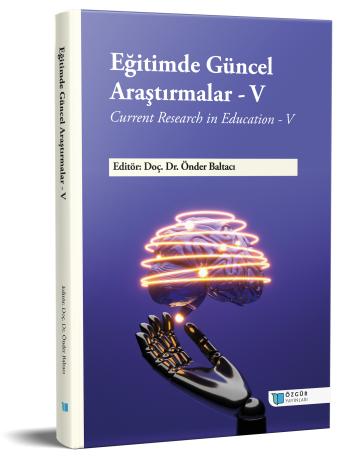
Assessment and Evaluation of Teaching Turkish as a Foreign Language
Chapter from the book:
Baltacı,
Ö.
(ed.)
2023.
Current Research in Education - V.
Synopsis
Assessment and evaluation practices are of great importance in terms of ensuring that education and training activities have achieved their purposes and providing evidence for achievement. In teaching Turkish language as a foreign language, these practices are performed in order to enhance the quality of teaching process, to determine the levels of language learners, to eliminate what is missing in the learning, if any, and to assure continuity to success. Assessment and evaluation activities in teaching Turkish language as a foreign language has such purposes as determining the language level of the learner prior to the teaching process and to place them in appropriate classes, identifying and eliminating what is missing in learning while the language learning process continues, and making a decision regarding the learners at the end of the language teaching process.
In teaching Turkish language as a foreign language, it is aimed to gain comprehension (listening, reading) and expression (speaking, writing) skills in a balanced way. Both teaching and assessment and evaluation processes focus upon these language skills. Perpetual use of assessment and evaluation activities during the language teaching process entirely will help to acquire language skills balancedly. Since the process is constantly controlled in the evaluation thoroughly, the missing points can be eliminated and teaching process can be directed effectually.
There are certain points to consider when measuring language skills. At each language level (A1, A2, B1, B2, C1, C2), there are some behaviours that need to be gained concerning listening, reading, speaking and writing skills. The linguistic texts to be used in the assessment and evaluation process and the questions asked are to be able to reveal the behaviours that should be gained at that level. In addition, “functional language teaching” should be conducted by considering the fact that the texts are related to daily life and Turkish culture, and “teaching culture along with the language” should be assured. The grammatical structures in the questions asked to learners or in the texts used should consist of the grammatical structures taught to the learner. High number of words the meaning of which is not known should be avoided.
There are numerous assessment and evaluation tools that can be employed in teaching Turkish language as a foreign language. It is also highly important to use more than one assessment and evaluation tool that is suitable for the nature of the skills and can measure the acquirements for performing an effective assessment and evaluation. In addition to traditional assessment and evaluation tools, alternative (process-oriented) tools should also be included.

